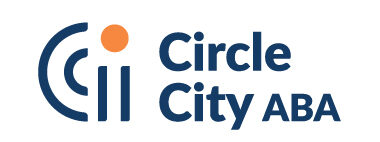Your Child’s Therapist Is a VIP!
Your child’s ABA therapist or registered behavior technician (RBT) can be a very important person in your and your child’s life. They are the person who works with your child to improve daily living, make it possible for your child to cope with difficult emotions, and increase your child’s language skills, and they are who you trust your child with regularly.
Oftentimes, a deep connection can form between children and their therapist, making the therapist a significant person in both the child and family’s lives. However, it is important to know that issues can arise when therapists in ABA settings have external relationships with clients.
What Is a Multiple Relationship in ABA?
You might want to build a relationship with your child’s therapist outside of their work with your child because you communicate with them regularly, have built trust with them, and know they care deeply about your child. While this may sound harmless, the term for such a case is “multiple relationship,” and it is against the behavior analysis code of ethics for therapists.
Multiple relationships occur when a behavior analyst is involved with a person in a professional capacity and any other capacity at the same time (Bailey & Burch, 2016). What is the problem with multiple relationships? Multiple relationships should be avoided because they could have harmful effects. Multiple relationships can impair judgment and objectivity when it comes to the client (Bailey & Burch, 2016).
It can be difficult for a therapist to inform a parent of bad news or negative reports if that parent is a close friend or family member. The therapist may also treat a client differently if they have multiple relationships with the client or the client’s parents. Multiple relationships can turn into conflicts of interest, and it can muddy the water where professionalism is concerned. What does this mean for you?
Dual Relationship Code of Ethics
Even if you consider your child’s therapist a VIP (and we’re sure they are!), it is important to remember the therapist is a professional working with your child, and there are things they are not allowed to do in order to maintain that role properly. Your child’s therapist cannot:
- Accept a gift from you
- Go on vacation with you
- Go out to eat with you
- Come over for dinner
- Become your “friend”
- Provide respite care or babysit
- Add you on social media
There are groups of professionals who have set rules for how ABA therapists should behave and ethically act. Though the details may vary depending on the organization, the basic principles for therapists working on ABA settings include:
- Avoiding conflicts of interest – In the interest of your child’s wellbeing, therapists should actively monitor and address any conflicts of interest that may arise due to dual relationships in ABA.
- Creating boundaries – Therapists are expected to establish clear and appropriate boundaries in their therapeutic relationships to maintain objectivity. This will prevent any confusion or negative interactions with your child.
- Avoiding harm – Therapists should prioritize your child’s well-being and avoid any actions or relationships that may harm or exploit them emotionally or physically.
- Keeping records – Your child’s therapist should maintain accurate and thorough records of all interactions with your child to show that established guidelines are followed.
- Seeking consultation – If a therapist suspects a relationship is forming with you or your child that could go against multiple relationship ethics, the therapist should seek consultation on the matter.
- Terminating therapy – While this would be a last resort, terminating therapy could be in the best interest of your child. If a multiple relationship in ABA arises that can’t be avoided, the therapist should consider terminating the therapeutic relationship on everyone’s behalf.
While it may be challenging for you or your child to avoid a personal relationship with a therapist outside of work, it’s important to follow the dual relationship code of ethics for the safety and well-being of your child.
FAQs About Dual Relationships in ABA
What are some examples of professional boundaries in ABA?
There are certain rules your child’s therapist should follow in order to keep things professional. They should keep your child’s information private, ask for permissions before starting any tests or treatments, and speak to both you and your child in a respectful way.
What does the BACB say about multiple relationships?
The Behavior Analyst Certification Board (BACB) says that parents and children should avoid creating both personal and professional relationships with their therapist.
Where can parents or children find guidance on how to manage dual relationships in ABA settings?
While it’s likely that a strong bond can form between your child and their therapist, it’s important to always stay up to date on the multiple relationship ethics in an ABA setting. Parents can seek supervision from professionals and speak to their child’s therapist early on about setting boundaries that can be maintained.
Is it ever acceptable for my child’s therapist to socialize with my child outside of ABA therapy?
In certain situations, dual relationships in ABA may be unavoidable, such as in small communities. Some limited socialization may be acceptable, but parents should carefully consider the potential impact it could have on the child’s well-being.
Where would I find more information on ABA therapy?
If you want to learn more about ABA therapy, consider visiting our FAQs resource on our website. You can also always contact our team for assistance.
About Circle City ABA
Circle City ABA is a state-of-the-art autism center. Specializing in applied behavior analysis (ABA) therapy for children with autism and related conditions, Circle City ABA is a destination where play meets progress. Programs are designed with each child in mind.
The journey begins with the initial assessment from our qualified team. Many families are already loving Circle City ABA, and we can’t wait to show you all we can provide. Request enrollment information on our website today!
References: Bailey, J. S., & Burch, M. R. (2016). Ethics for behavior analysts (3rd ed.). New York, NY: Routledge



